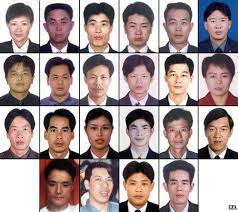Morecambe Bay Cockling Disaster Service of Remembrance
Holy Trinity, Bolton-le-Sands and St Luke’s Church Hest Bank will hold a Service of Remembrance at 11.00am on Monday 5th February at the shore by Archer’s Cafe. It will be a public event to which we invite local residents as well as parishioners from our churches.
“What I anticipate at this stage is that we:
- Tell the story again, in terms of what happened 20 years ago and how many people died.
- Read out any poems and reflections that have been written.
- Have a bible reading and prayers.”
Background
On the evening of 5 February 2004, at least 21 Chinese illegal immigrants were drowned by an incoming tide in Morecambe Bay while harvesting cockles off the Lancashire coast. Fifteen other labourers from the same group managed to return safely to shore.
During the investigation and trial, it emerged that the labourers were inexperienced, spoke little or no English and were unfamiliar with the area. The Chinese gangmaster who organised the trip and two associates of his were found guilty of manslaughter, of breaking immigration laws and other crimes, and were sentenced to several years in prison.
Modern slavery is present in every part of the UK. You might even see people trapped in slavery without knowing it. It might be someone working in a private home on your street; the man working in the car wash in town; or the cleaner who empties your office bin every night. It can be difficult to spot the signs, but if you are concerned about someone, please call the modern slavery helpline.
The number of people identified as victims of modern slavery has been rising year on year, with over 12,000 people referred to the authorities in 2021. The real number of people trapped in slavery is estimated to be much higher – more than 130,000 people – and is estimated to cost the UK £33 billion per year.
Modern slavery exists in many forms in the UK, including trafficking into criminal activities like cannabis farming, sexual exploitation, domestic slavery or forced labour on farms, in construction, shops, bars, nail bars, car washes or manufacturing.
While it is impossible to know the full extent of modern slavery in the UK, the Home Office release data to demonstrate the numbers of people referred to authorities. At the end of 2021 there were:
- 12,727 potential victims of modern slavery – the highest number of referrals since the records began in 2009
- 43% of all of these were children – meaning there were 5,468 potential child victims
- 31% of people referred were British nationals
In 2021, criminal exploitation was the most common form of slavery in the UK, followed by forced labour. Criminal exploitation is often driven by the cultivation and sale of drugs in the UK, especially by exploiting children. This includes British children forced into ‘county lines’ drug trafficking, and Vietnamese nationals trafficked into forced labour in cannabis production.
The Morecambe Bay cockling tragedy on February 5 2004, led to the government giving its backing to the Gangmasters Act, aimed at stamping out gangmasters and to safeguard the welfare and interests of workers in agriculture, horticulture, shellfish gathering.
